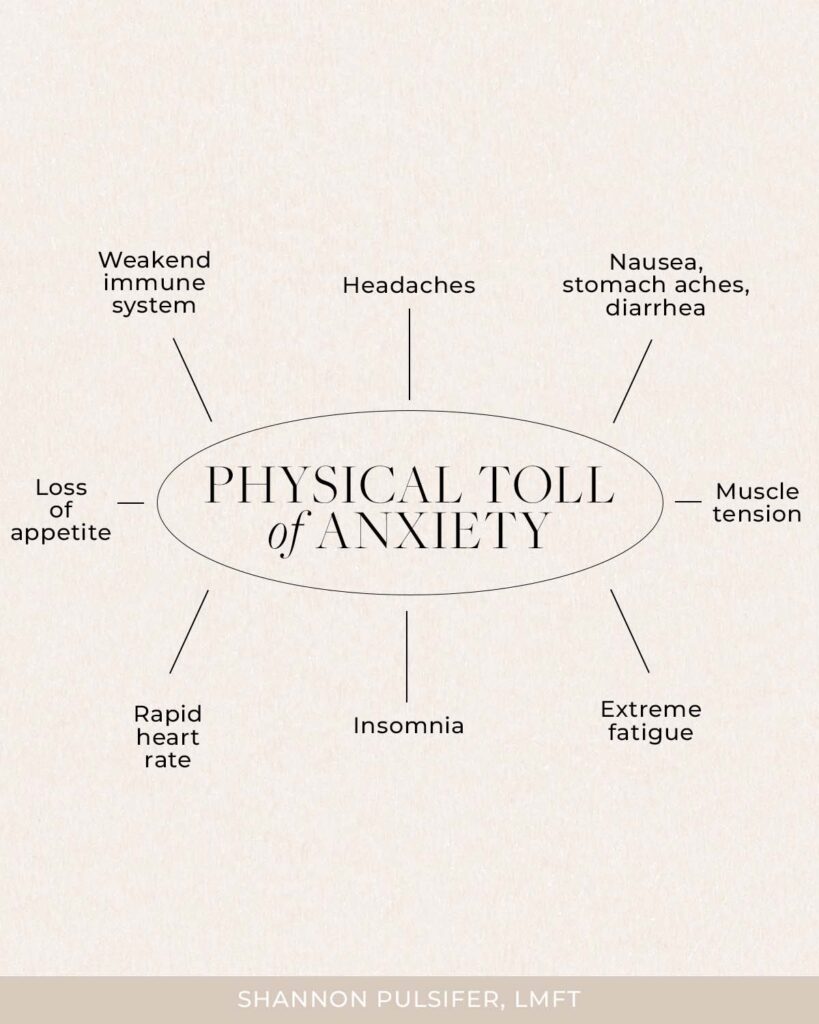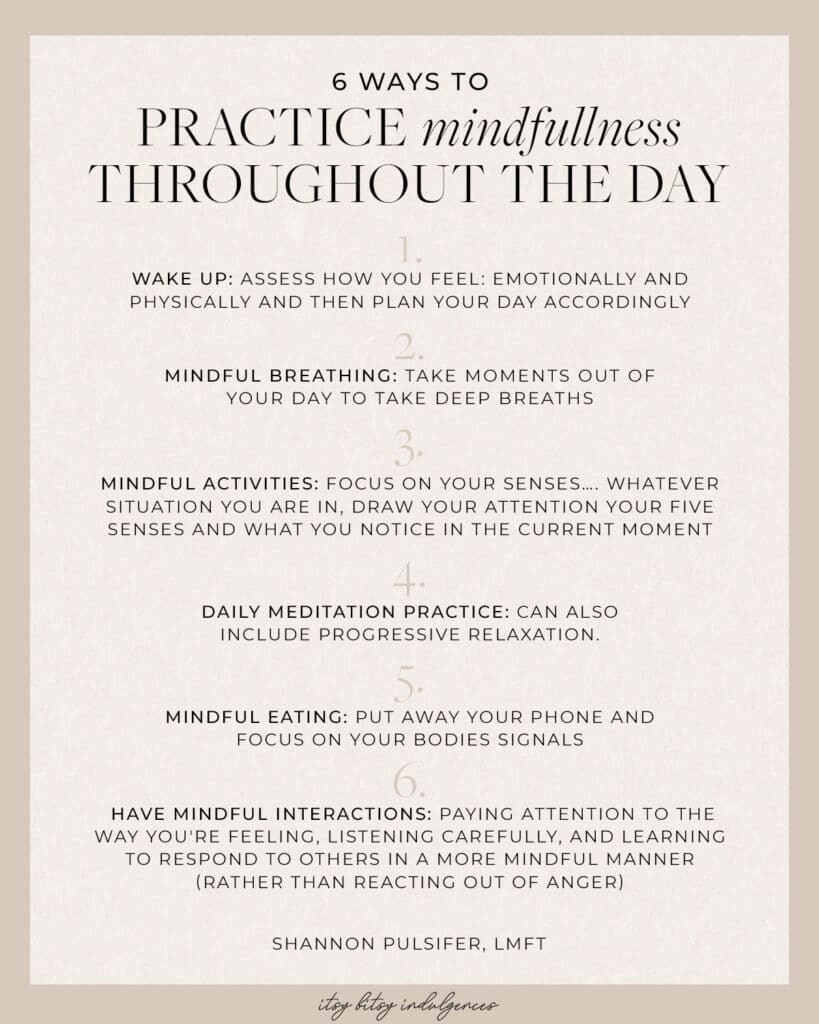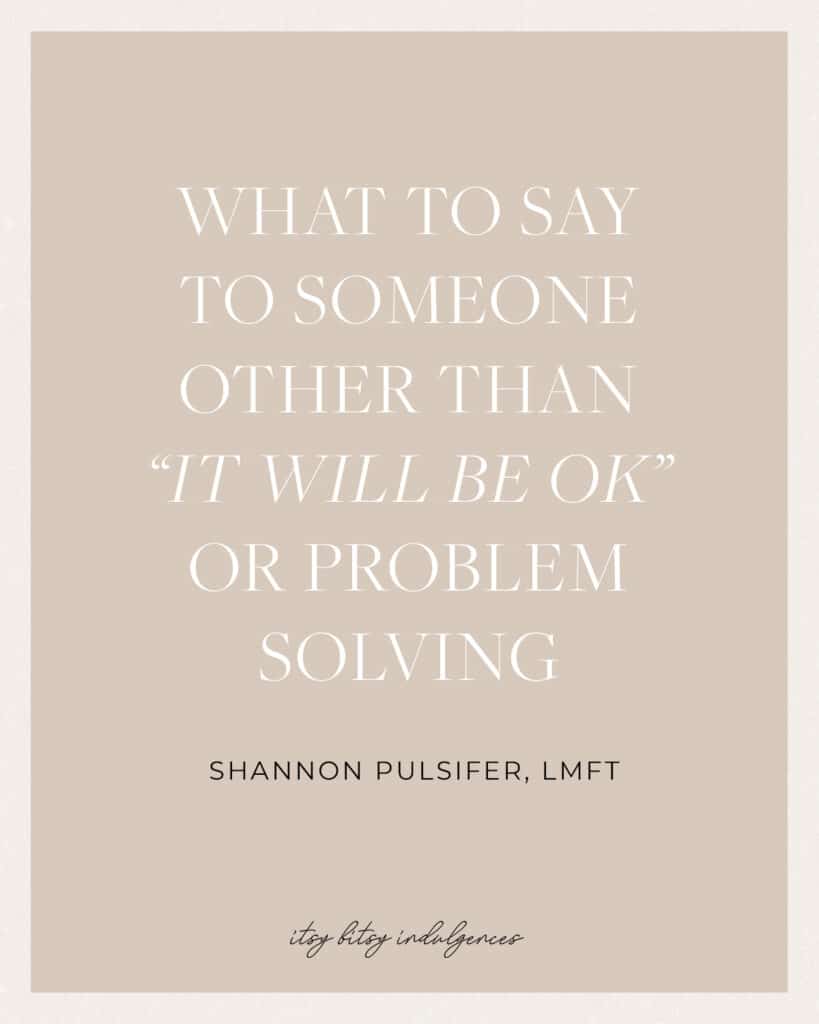
When I was in graduate school, one of my clinical supervisors at our community clinic talked at length about the physical toll that anxiety can take on a person’s health. And while our protocol was to always refer people for an entire physical work-up, once I heard that, I began to see it more and more in the clients I would work with (these were clients who were otherwise “physically” healthy). And when I had my own bout with anxiety about a month ago, I could feel the toll it was taking on my body…. everything from constant headaches, being tired all the time, neck tension, and stomach issues.
And with everything we juggle as humans… work, relationships, environmental stressors that feel beyond our control, kiddos, parent’s health, etc, I think it’s inevitable that most people will experience some form of anxiety now and then (of course this presents on a continuum from mild to severe, differing for each person). So today I thought I would share an easy graphic that I created based on a hand out I used to cover over with clients. I hope it’s helpful in some way, for someone.
THE PHYSICAL TOLL ANXIETY CAN TAKE
tension in the neck (I know that I hold so much in my shoulder area and have to remind myself to relax my shoulders… I’ve had clients who have awful jaw pain from grinding their teeth when they sleep during high anxiety periods)
headaches: headaches are a common symptom for generalized anxiety disorder, where an individual finds it very hard to control their anxiety and constantly worry. Some research has found that the decrease in serotonin levels, when anxious, can attribute to this.
Nausea, stomaches, diarrhea: think about a time when you’ve been very nervous, and then remember how your stomach felt… same thing if you’re constantly experiencing anxiety.
Muscle Tension: anxiety causes our muscles to tense up, which can create discomfort, practicing progressive relaxation techniques can really help with this.
Weakened immune system: Anxiety triggers our fight or flight responses and when this is temporary, our body can return to a leveled state. Yet when anxiety continues our body can’t recover, which can result in a weakened immune system.
Loss of Appetite
Insomnia: It can be hard to quiet the mind enough to fall asleep when your mind in constantly worried and in an anxious sleep. Which can lend itself to….
Extreme fatigue: and aside from lack of sleep, being constantly worried and having your mind on a sort of constant overdrive can create some major fatigue in the body.
And to wrap it all up, my supervisor (the one I referenced above) always said that when our mental health takes a toll on our physical health we should treat it like a cold…. take a day off and do something that your body needs to feel better (maybe that means a nap, going on a walk, cuddling up on the couch and watching your favorite movies, etc…). Just don’t ignore it.
I hope everyone has a great day!
__________
*My Disclaimer: This content is for informational purposes only. It is not intended to be a substitute for professional advice, diagnosis, or treatment. Always seek the advice of your mental health provider with any questions you may have, and your health care provider for any medical concerns/issues you might be experiencing. Never disregard professional psychological or medical advice nor delay in seeking professional advice or treatment because of something you have read on this blog.










